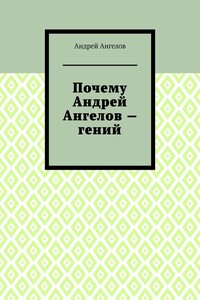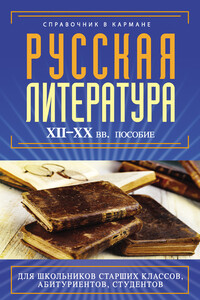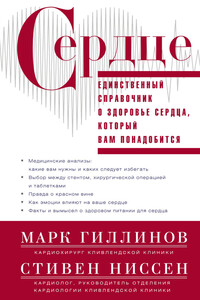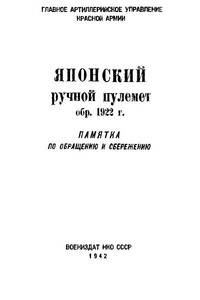Словарь американских идиом: 8000 единиц - [5]
See: THE TRACKS.
[act] See: READ THE RIOT ACT.
[act high and mighty]{v. phr.} To wield power; act overbearingly; order others around; look down on others. •/Paul is an inexperienced teacher and he acts high and mighty with his students./
[actions speak louder than words] What you do shows your character better and is more important than what you say. — A proverb. •/John promised to help me, but he didn’t. Actions speak louder than words./ •/Joe is very quiet, but actions speak louder than words. He is the best player on the team./
[act of faith]{n. phr.} An act or a deed that shows unquestioning belief in someone or something. •/It was a real act of faith on Mary’s part to entrust her jewelry to her younger sister’s care./
[act of God]{n.} An occurrence (usually some sort of catastrophe) for which the people affected are not responsible; said of earthquakes, floods, etc. •/Hurricane Andrew destroyed many houses in Florida, but some types of insurance did not compensate the victims, claiming that the hurricane was an act of God./ See: FICKLE FINGER OF FATE.
[act one’s age] or [be one’s age]{v. phr.} To do the things that people expect someone of your age to do, not act as if you were much younger than you are. •/Mr. O’Brien was playing tag with the children at the party. Then Mrs. O’Brien said, "Henry! Act your age!" and he stopped./
[actor] See: BAD ACTOR.
[act out]{v.} 1. To show an idea, story, or happening by your looks, talk, and movements. •/He tried to act out a story that he had read./ 2. To put into action. •/All his life he tried to act out his beliefs./
[act up]{v.}, {informal} 1. To behave badly; act rudely or impolitely. •/The dog acted up as the postman came to the door./ 2. To work or run poorly (as a after all machine); skip; miss. •/Thе car acted up because the spark plugs were dirty./
[add fuel to the flame]{v. phr.} To make a bad matter worse by adding to its cause; spread trouble, increase anger or other strong feelings by talk or action. •/By criticizing his son’s girl, the father added fuel to the flame of his son’s love./ •/Bob was angry with Ted and Ted added fuel to the flame by laughing at him./
[add insult to injury]{v. phr.} 1. To hurt someone’s feelings after doing him harm. •/He added insult to injury when he called the man a rat after he had already beaten him up./ 2. To make bad trouble worse. •/We started on a picnic, and first it rained, then to add insult to injury, the car broke down./
[addition] See: IN ADDITION.
[address] See: PUBLIC-ADDRESS SYSTEM.
[add the finishing touches]{v. phr.} To complete; finish. •/Mary’s first novel promised to be excellent; however, her editor suggested that she should add some finishing touches before accepting it./
[add up]{v.} 1. To come to the correct amount. •/The numbers wouldn’t add up./ 2. {informal} To make sense; be understandable. •/His story didn’t add up./
[add up to]{v.} 1. To make a total of; amount to. •/The bill added up to $12.95./ 2. {informal} To mean; result in. •/The rain, the mosquitoes, and the heat added up to a spoiled vacation./
[ad lib]{v. phr.} To improvise; interpolate during speech. •/When the actress forgot her lines during the second act, she had to ad lib in order to keep the show going./
[advance] See: IN ADVANCE or IN ADVANCE OF.
[advantage] See: TAKE ADVANTAGE OF, TO ADVANTAGE.
[a few]{n.} or {adj.} A small number (of people or things); some. •/The dry weather killed most of Mother’s flowers, but a few are left./ •/In the store, Mary saw many pretty rings and bracelets, and she wanted to buy a few of them./ •/After the party, we thought that no one would help clean up, but a few couples did./ •/Alice wanted to read a few pages more before she stopped./ — Usually "a few" is different in meaning from "few", which emphasizes the negative; "a few" means "some", but "few" means "not many". •/We thought no one would come to lunch, but a few came./ •/We thought many people would come to lunch, but few came./ But sometimes "a few" is used with "only", and then it is negative. •/We thought many people would come to lunch, but only a few came./ — Sometimes used like an adverb. •/Three students have no seats; we need a few more chairs./ •/If we can set up chairs faster than people come and sit in them, we will soon be a few ahead./ — Sometimes used with "very" for emphasis. •/Uncle Ralph gave away almost all of his sea shells, but he still had a very few left./ Compare: A LITTLE. Contrast: A LOT, QUITE A FEW.
[affair] See: LOVE AFFAIR.
[afoul of]{prep.} 1. In collision with. •/The boat ran afoul of a buoy./ 2. In or into trouble with. •/The thief ran afoul of the night watchman./ •/Speeders can expect to fall afoul of the law sometimes./
[afraid of one’s shadow]{adj. phr.}, {informal} Scared of small or imaginary things; very easily frightened; jumpy; nervous. •/Mrs. Smith won’t stay alone in her house at night; she is afraid of her own shadow./ •/Johnny cries whenever he must say hello to an adult; he is afraid of his own shadow./
[a friend in need is a friend indeed]

Здесь Андрей Ангелов рисует облик современного читателя! По его мнению, читатели делятся на два основных биологических вида: настоящие читатели и псевдочитатели. И это только начало сей эволюции... Данная версия - единственно авторская и без цензуры, что есть в Рунете, с новой обложкой. Плюс автор добавил реальных фото читателей и примеров/описаний, а также вставки из 2020 года... Ну, и чуть сорвал покровы с одного сайта... на букву Х (зачёркнуто) Ф.

Наш российский поисковик знает ответы на все вопросы. И вопрос, вынесенный в название книги — не исключение. Автор/составитель книги заскриншотил доказательства. Да, и всё не так однобоко, как может показаться… Получилась интересная новелла, с нотками абсурда. Ну, как всегда у Андрея Ангелова…

Справочник содержит краткие пересказы и анализ текстов наиболее значимых русских авторов, начиная с древнерусской литературы и до современной. Издание станет незаменимым помощником старшим школьникам, студентам младших курсов вузов при подготовке к самостоятельным и контрольным работам, тестам, экзаменам, ЕГЭ.

В какой-то момент практически каждый задумывается о сердечных недугах. В этом подробном справочнике представлены важные рекомендации по самым животрепещущим вопросам. Как полноценно жить после сердечного приступа. Сколько физических упражнений вам действительно требуется и когда они вредны. О чем врач может не сказать вам, если вы нуждаетесь в операции на сердце. Почему у женщин в шесть раз больше шансов умереть от сердечных заболеваний, чем от рака груди, и что с этим делать. Могут ли определенные продукты помочь предотвратить сердечные заболевания или послужить их причиной.

В книге рассказывается история главного героя, который сталкивается с различными проблемами и препятствиями на протяжении всего своего путешествия. По пути он встречает множество второстепенных персонажей, которые играют важные роли в истории. Благодаря опыту главного героя книга исследует такие темы, как любовь, потеря, надежда и стойкость. По мере того, как главный герой преодолевает свои трудности, он усваивает ценные уроки жизни и растет как личность.

«Гримуар Sall» — книга о викканской магии. Той ее части, которая не публиковалась ранее. Книга содержит описания и способы вызываний различных духов природы. Читатель может быть как знаком с виккой и магией в целом, так и впервые читать эзотерическую литературу. Книга — практическое пособие, в котором много нового для всех.